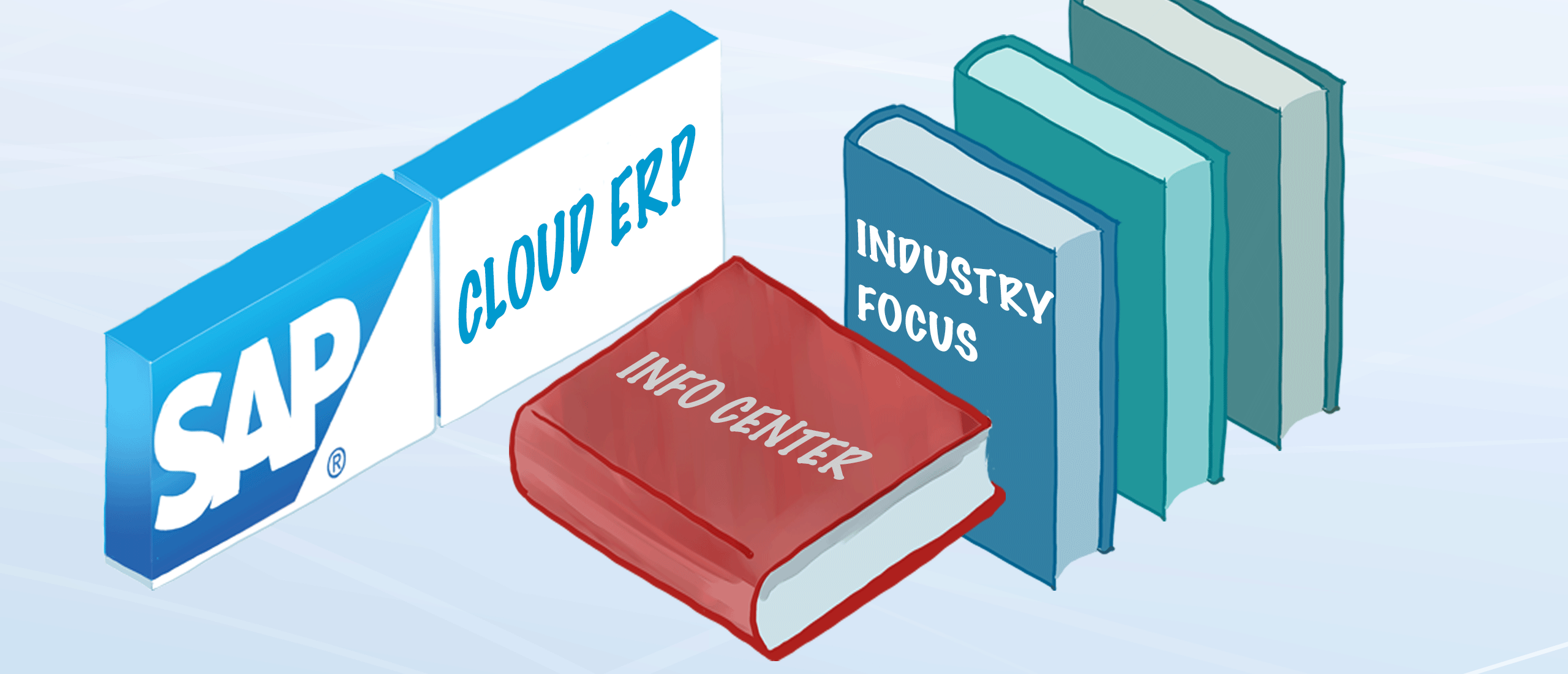
Zero Waste of Sustainabiulity Explained
Introduction
SAP's Sustainability Cloud solutions are designed to address the critical challenge of achieving zero waste in business operations. Through the innovative SAP Cloud for Sustainable Enterprise, organizations are empowered with the tools necessary to minimize waste generation and optimize resource utilization across their value chains.
The suite of Zero Waste solutions facilitates the identification, analysis, and management of waste streams, enabling companies to transition towards more circular economy models. By leveraging advanced analytics, reporting capabilities, and real-time data tracking, businesses can significantly reduce their environmental footprint, enhance sustainability practices, and contribute to a more sustainable future.
SAP's commitment to zero waste not only aids organizations in complying with environmental regulations but also positions them as leaders in sustainable practices, driving efficiency, cost savings, and positive global impact.
SAP Responsible Design and Production
Holistically manage packaging and regulatory risk across global markets and support transition to sustainable portfolio.
SAP Responsible Design and Production helps producers manage their Extended Producer Responsibility (EPR) obligations and plastic taxes so they can control and eliminate the costs of the downstream waste system and make design changes to eliminate waste.
- Collation of Data on production, recipes, batches, logistics, materials used and sales
- Check volumes of types of materials, assess impact KPI’s
- Measure and manage EPR reporting forms, fees, payments, PRO’s and Plastic Taxes
- Reporting for financial reports, sustainability reports, investors and audits
- Redesign products and packaging to be more sustainable
- Detailed design screens for Product Managers, Product Designers and Packaging Managers
- Assess impact of changes in design using new materials
SAP Responsible Design and Production aims to provide tailored intelligence that will enable businesses to keep pace with EPR regulations and plastic taxes, embed circularity principles into core business processes, and optimize the design for regenerative business.
Capabilities of SAP Responsible Design and Production
- Manage EPR declarations and Materials Taxes in line with latest regulations
- Maintain a global view of progress and support circular design processes.
- Provide transparency and reporting to third party NGOs on Voluntary Agreements.
Integrations of SAP Responsible Design and Production
- S/4HANA
- PLM
- ECC 6 (requires ABAP plugin)
- CSV/Excel Import
SAP Intelligent Agriculture
Drive sustainability, resilience, and efficiency in agriculture by empowering data-based decision-making through digitalized farming processes and services.
Agricultural production globally greatly impacts environmental, social, and economic sustainability.
SAP Intelligent Agriculture helps agribusinesses in their efforts to achieve sustainable and regenerative farming practices for their own farming operations or with upstream growers and business partners.
The solution enables agribusinesses to quantify, monitor, control, and optimize how much inputs are consumed, how the environment is impacted, and ensure compliance requirements are met.
The objective of SAP Intelligent Agriculture
- Support farmers in the transition to regenerative agricultural practices with individualized data-driven farming services and recommendations
- Capture accurate and detailed data from field and farm for optimization, documentation, consumer transparency and compliance
- Optimize product sustainability footprints starting at the farm along multiple sustainability dimensions.
The capabilities of SAP Intelligent Agriculture
Farm data management allowing efficient management of a broad set of farming and field data consistently across the enterprise
Farming task management to manage, plan and schedule farming tasks and resources
Field planning and history to keep records on past and current crops and field sustainability and performance
Farming cockpit to obtain a current map-based overview of farm and field
Farming intelligence providing recommendations and estimations for the farming process by connecting data science and machine learning capabilities
Supporting Applications
- SAP S/4HANA and IBP to manage farming processes E2E
- SAP BTP to integrate different data sources and develop extensions
- SAP CX to provide differentiating experiences for farmers and growers
SAP EHS Environment Management for Waste Management
Enhance compliance by tracking waste across the full cycle. SAP EHS Environment Management helps organizations manage their environmental impact by supporting inventories and tracking air, water, and waste emissions.
SAP EHS Environment Management for Waste Management aims to protect the environment by ensuring a compliant, full-cycle waste generation to disposal process. Identify novel opportunities for waste minimization.
360° Compliance: Ensure uninterrupted compliance at every step of the ‘waste generation to disposal’ cycle.
Less Waste: Make sustainability profitable by quickly identifying novel, cheaper ways to reduce waste output.
Operational Continuity: Avoid disruption and delays through a streamlined oversight system tracking all water, air, and waste outputs.
Capabilities of SAP EHS Environment Management for Waste Management
- Waste identification & characterization
- Onsite waste management
- Shipment planning & compliance
- Compliant shipping
- Disposal Management
- KPI reporting
- On-premise or cloud deployment
Supporting Applications:
- SAP Product Compliance
- SAP Dangerous Goods Management
- SAP Materials Management
- SAP S/4HANA®
SAP Returnable Packing Management
SAP Returnable Packaging Management enables circular logistic flows for returnable and reusable packaging material such as containers, pallets, tanks, and load carriers. It is powered by the SAP Business Technology Platform to enable collaboration with partners along the supply chain ecosystem, and it integrates with multiple backend systems.
The objective of SAP Returnable Packing Management is to manage your company’s returnable packaging assets and the returnable assets of your business partners, such as pallets, boxes, and containers.
Capabilities of SAP Returnable Packing Management
- Manage Returnable Accounts for serial and non-serialized packaging, considering various ownership types and manage the status of returnable packaging.
- Manage Account Statements according to VDA 5007 and automatically perform account matching via Machine Learning
- Perform Returnable Planning with reorder-point planning
- Enable Returnable Rentals for serialized packaging
- Integrate to multiple backend systems
Supporting Applications
- SAP S/4HANA Cloud, SAP S/4HANA OnPremise, SAP ECC
- SAP Integration Suite
SAP S/4HANA for Product Compliance
SAP S/4HANA Product Compliance applications offer complete end-to-end support across all relevant processes, from product development, purchasing, and production to sales and distribution. By deploying automated compliance assessment and reporting, customers can mitigate reputational risk while accelerating time to market.
When you produce, sell, and ship products, you must comply with regulatory and stakeholder requirements for ingredients, registrations, provision of safety data sheets, labeling, packaging, and safe transportation. You need a solution that helps fulfill these requirements while ensuring product marketability, reducing compliance costs, and protecting your brand.
SAP S/4HANA for Product Compliance helps you to automate product compliance to protect revenue and drive sustainability. It includes capabilities to manage regulatory and sustainability requirements, track registrations and substance volumes, classify products, create compliance documents, and package, transport, and store hazardous materials properly with accurate labeling.
Dangerous goods management:
- Oversee dangerous goods information centrally, automate dangerous goods classification, and leverage provided dangerous goods content;
- Ensure all shipments comply with dangerous goods regulations through integrated dangerous goods checks
- Automate the creation and provisioning of dangerous goods documents
Safety data sheet and label management
- Manage substance and regulatory information centrally
- Streamline component and product classification and automate safety data sheet and label creation
- Automate label printing and safety data sheet shipping that’s integrated with logistics processes
Product marketability and chemical compliance
- Manage compliance information centrally and satisfy legal and customer requirements.
- Track volumes of regulated substances automatically and assess and verify products for different compliance requirements.
- Ensure compliance throughout the product lifecycle with compliance and registration checks.
SAP Business Network for Logistics, Material Traceability
Companies need traceability of their products through the entire supply chain to improve product safety and sustainability, increase supply chain visibility, and promote consumer transparency.
The SAP Business Network Material Traceability leverages Blockchain technology to capture the complete material provenance from raw material to finished product and allows companies to share information to trigger pin-pointed product recalls & support sustainability initiatives.
Challenges / Pain Points
- Limited to no visibility beyond immediate up- and downstream nodes in the supply chain
- Missing incentive for supply chain partners to share information in a trusted and secure fashion
- Inability to establish brand transparency
Customer Requirements
- Track bi-directional provenance of components and flow of materials and products.
- Have visibility to product genealogy from raw material to finished product
- Locate the origin and batch of affected products across the end-to-end supply chain
Solution Highlights
- Enable data sharing, including carbon footprint data across the n-tier supply network to improve end-to-end visibility and address sustainability initiatives.
- Support multi-component provenance
- Alert supply chain partners of any product issues
- Easily integrate backend systems to source data for product genealogy
Benefits
- Transparency into the end-to-end supply chain by capturing and analyzing provenance from raw material to finished product
- Traceability of multi-ingredient and multi-component material production across an n-tiered supply chain
- Manage recalls efficiently by instantly identifying product issues reported anywhere in the supply chain.
- Gain consumer confidence by demonstrating transparency and commitment to promote product quality and sustainability.
SAP Green Token
SAP Green Token is a software-as-a-service cloud solution that traces raw material flows and provides traceability and transparency to the supply chain's Environmental, Social, and Governance (ESG) attributes.
SAP Green Token facilitates the transition to sustainable materials
- Leverages chain-of-custody models and tokenization
- Industry and ESG standard-agnostic
SAP Green Token helps prove the sustainability attributes of raw materials
- Supports up-to-date sustainability standards and certification (e.g., ISCC and EUDR)
- Ensures trust in auditing and reporting with an immutable blockchain ledger
Accessible to all types of organizations and easy to implement
- Connect via a Direct Integration (SAP ERP), Open APIs, or drive via CSV Exports
- Use as a stand-alone for mass balance and segregated accounting for your value chain
- Optional and flexible onboarding of the supply chain for end-to-end transparency
- Each organization controls their own data and visibility
